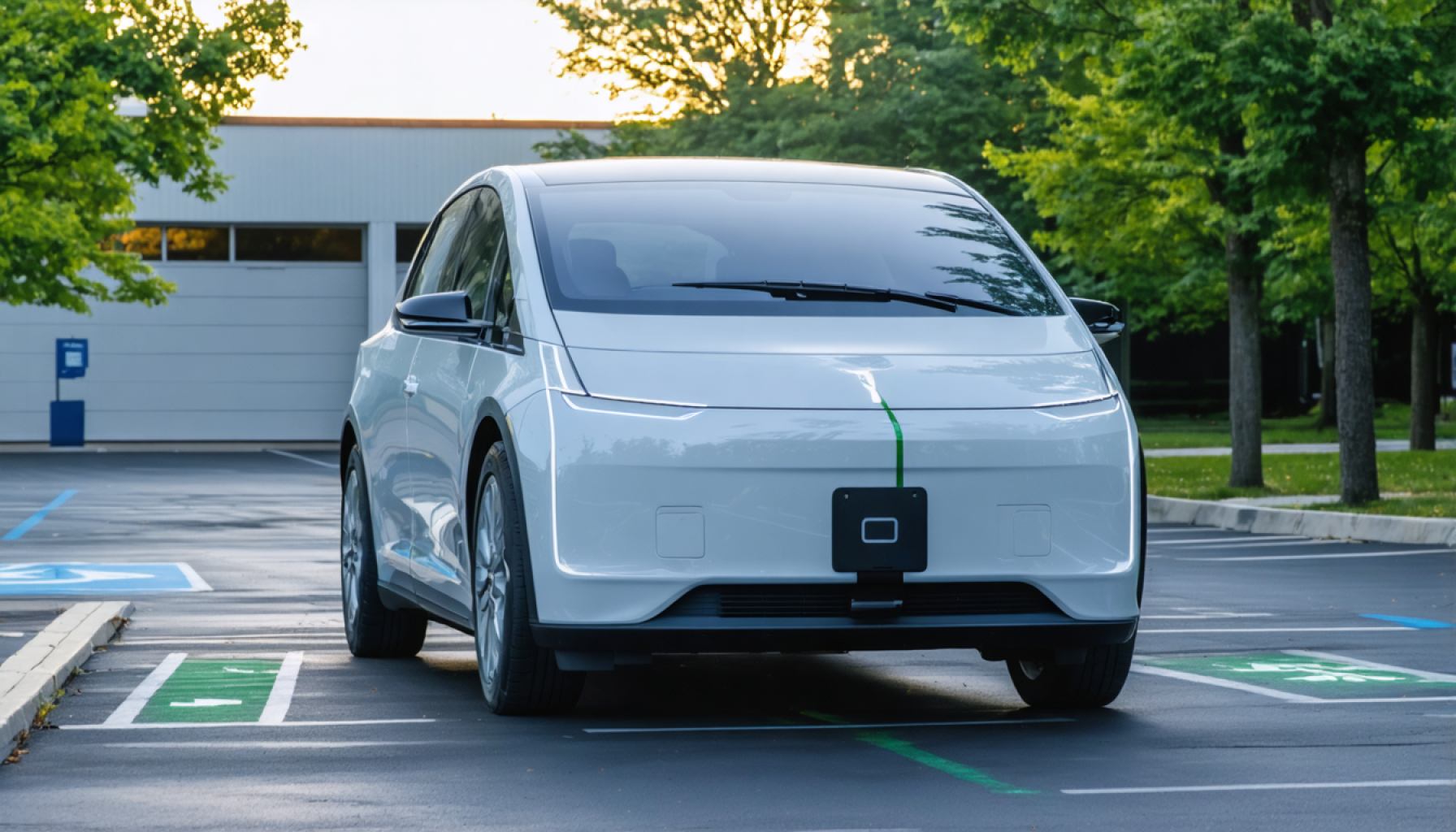- Illinois is leading the electric vehicle (EV) revolution, surpassing national growth rates with a 50% increase in new EV registrations.
- State-driven incentives, including a $4,000 rebate for electric cars and $1,500 for motorcycles, are key to boosting EV adoption.
- ComEd’s $90 million incentive program offers rebates up to $30,000 for medium-duty commercial EVs, attracting the business sector.
- Governor JB Pritzker is pivotal in counteracting federal uncertainties, fostering a supportive environment for EV technology.
- Illinois exemplifies how cohesive policy initiatives and incentives can accelerate sustainable technology uptake.
Illinois is charging ahead in the electric vehicle (EV) revolution, accelerating faster than much of the nation. While some parts of the country seem to be idling, this Midwestern state is paving new roads with its ambitious adoption of EV technology.
This electrifying surge is partly fueled by a strategic push from state incentives and initiatives. The Illinois Environmental Protection Agency and the state’s largest utility company, Commonwealth Edison (ComEd), have propelled a significant spike in EV registrations. In the first quarter alone, new EV registrations in Illinois soared by over 50%, eclipsing the national increase of just 12% during the same period.
The landscape of Illinois is now speckled with a variety of electric vehicles, from sleek Teslas to robust medium-duty commercial EVs, all electrifying the roads. Governor JB Pritzker has been a catalyst behind this shift, counteracting federal uncertainties with tangible state incentives. He introduced a $4,000 rebate for new electric cars and $1,500 for electric motorcycles, directly incentivizing residents to make the eco-friendly switch.
Meanwhile, ComEd has ignited further excitement with its $90 million EV incentive program, which is turning heads, especially in the business sector. The program includes substantial rebates, up to $30,000 for medium-duty commercial EVs, making it an enticing choice for businesses looking to cut both costs and emissions.
All these efforts have rewired the automotive preferences of Illinois’ residents and businesses, leading to a historic jump in EV registrations. The power lies in incentives—bold, smart, and transformative—reshaping the state’s transport ecosystem.
Illinois stands as a shining example of how determined policy measures and robust incentives can supercharge the adoption of sustainable technology. As the nation’s eyes turn towards Illinois, the takeaway is clear: when government and industry unite to spark innovation, the results can be electrifying.
Why Illinois is Racing to the Forefront of the EV Revolution
Illinois’ Strategic Leap towards EV Adoption
Illinois is making significant strides in the electric vehicle (EV) landscape, leaving much of the nation trailing behind. This Midwestern state is a beacon of innovation, advancing EV adoption with fervor fueled by state incentives, supportive policies, and utility company initiatives. These combined efforts have driven a remarkable 50% surge in EV registrations in the first quarter alone, far surpassing the national average of 12%.
Key Ingredients of Illinois’ EV Success
1. State Incentives and Rebates:
– Governor JB Pritzker’s administration introduced substantial rebates, offering $4,000 for new electric cars and $1,500 for electric motorcycles. These incentives are pivotal in encouraging residents to transition to eco-friendly vehicles.
2. Utility Company Initiatives:
– Commonwealth Edison (ComEd) has launched a $90 million EV incentive program, providing up to $30,000 rebates for medium-duty commercial EVs. This program is instrumental in promoting business adoption of EVs, allowing companies to lower costs while reducing emissions.
3. Diverse EV Landscape:
– The roads of Illinois now feature a range of electric options, from popular Tesla models to medium-duty commercial vehicles, reflecting a diversified EV market tailored to various consumer and business needs.
Market Trends and Future Predictions
– Increasing EV Popularity:
– As EV technology becomes more accessible and charging infrastructure continues to improve, Illinois is likely to see even greater adoption rates in the coming years.
– Role of Infrastructure Improvement:
– Expansion of charging stations across the state will be crucial in supporting the growing number of EV users. As of now, Illinois is prioritizing the development of fast-charging networks to reduce range anxiety for drivers.
Real-World Use Cases and Benefits
– Cost Savings for Consumers and Businesses:
– With state rebates and utility incentives, purchasing EVs is becoming more cost-effective than ever. Businesses, in particular, can benefit from substantial savings on fuel and maintenance.
– Environmental Impact:
– The shift to EVs significantly reduces greenhouse gas emissions, aligning with state goals for sustainability and making a tangible impact on improving air quality.
Pros and Cons Overview
Pros:
– Robust incentives make EVs financially attractive.
– Pioneering state and utility programs support sustainable transportation.
– Broader vehicle variety caters to different consumer and business demands.
Cons:
– Initial infrastructure expansion costs can be significant.
– Continued dependency on state programs for growth.
Actionable Recommendations
– For Residents: Take advantage of state rebates and consider switching to electric vehicles to enjoy long-term cost savings and contribute to environmental sustainability.
– For Businesses: Explore utility incentives to transition fleet vehicles to electric, thereby cutting operational costs and enhancing your company’s green credentials.
Conclusion
Illinois exemplifies how determined policy initiatives and strategic incentives can fast-track the adoption of clean technology. Other states can take a cue from Illinois’ playbook, underscoring the importance of collaboration between government and industry. For more about electric vehicles and incentives, visit Illinois Environmental Protection Agency and ComEd.
